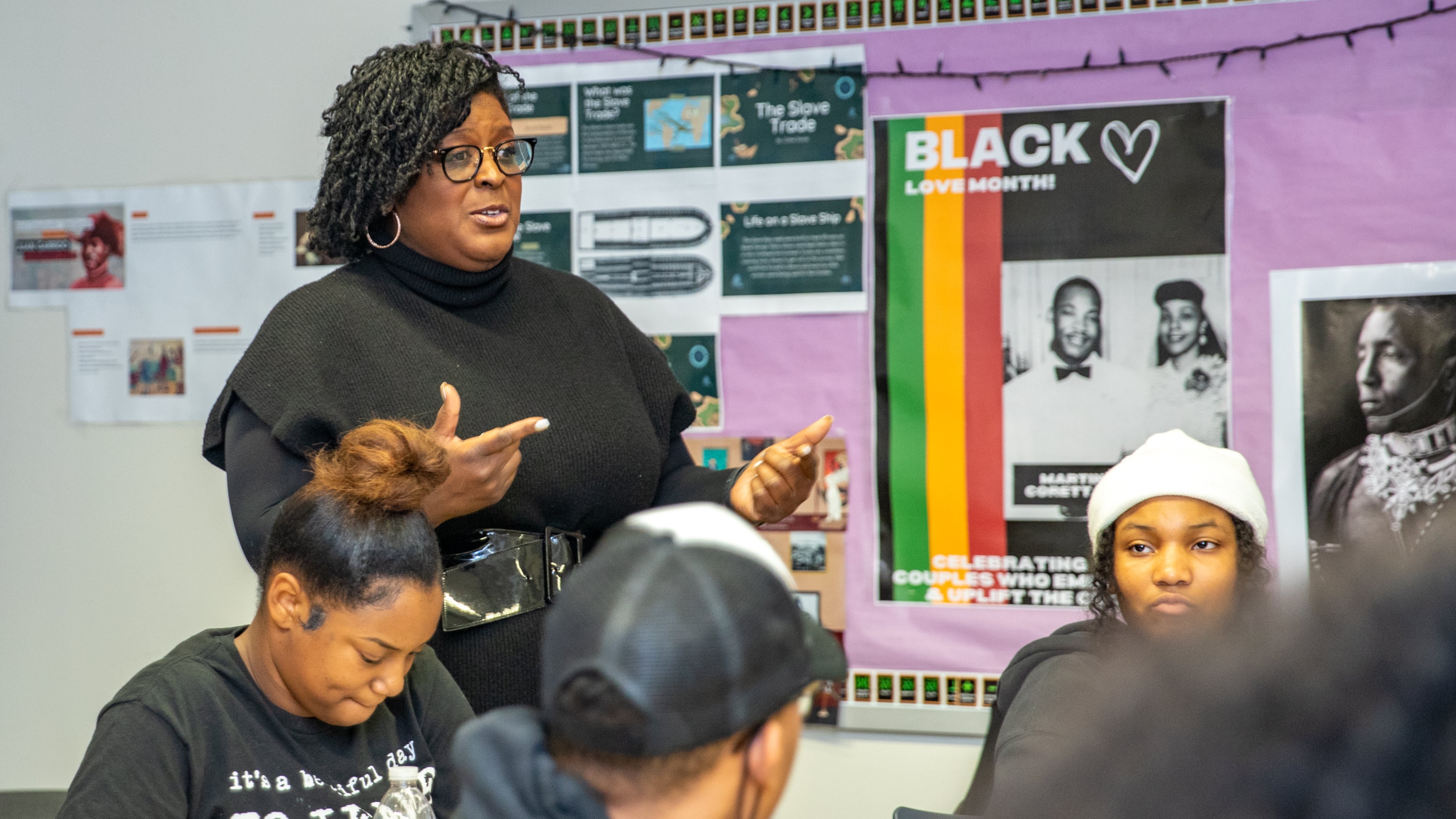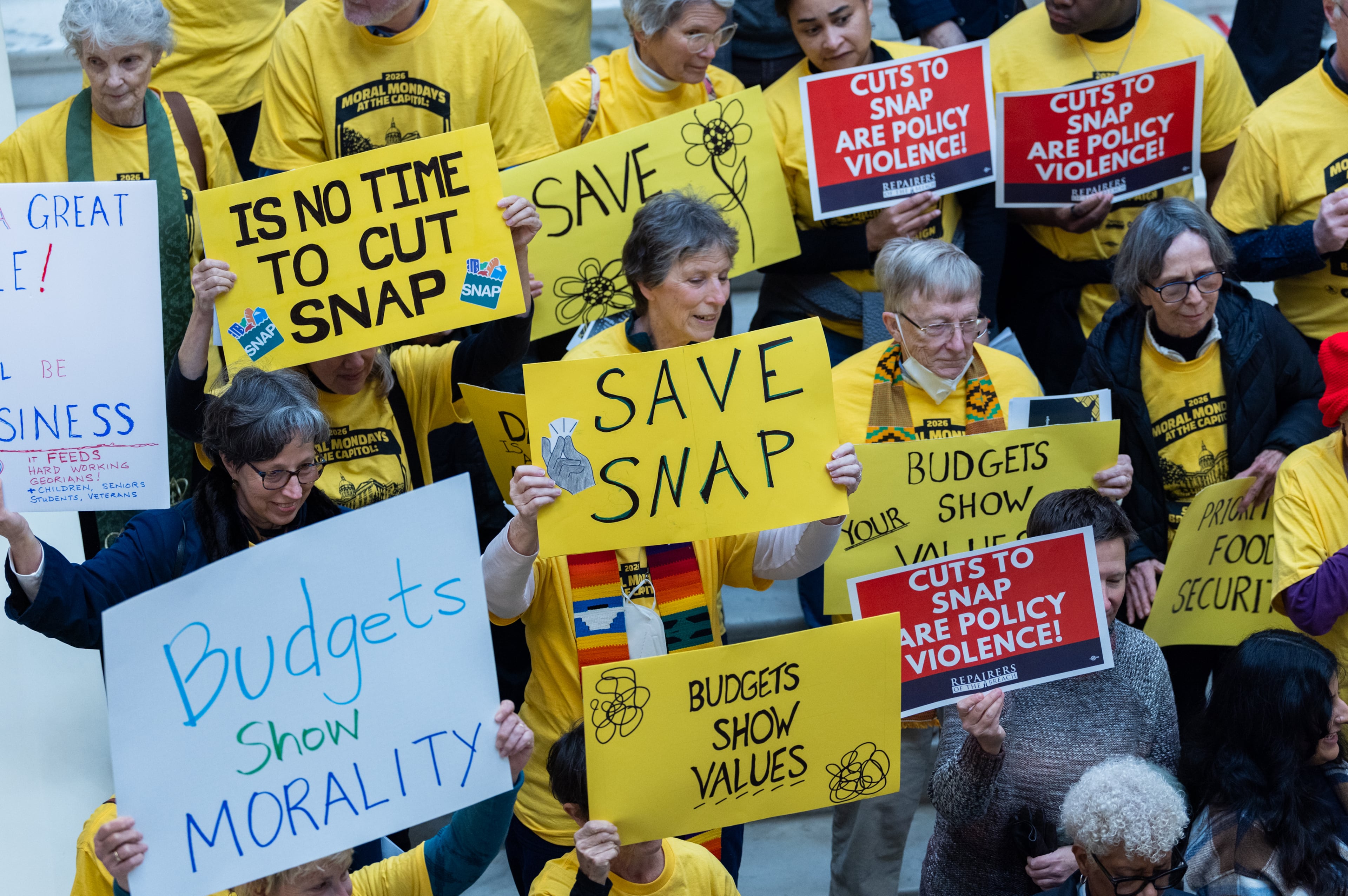How Georgia school leaders can defy gravity and soar

There are moments in education when it feels as if we, as the “Wicked” song suggests, are all defying gravity. The weight is real: the responsibility for the futures of young people, the expectations of families, and the ever-changing demands of a modern workforce. And yet, in schools and districts across Georgia and the nation, leaders, educators, and students are proving every day that it is possible to rise higher than the pull of the challenges around us.
That truth is reflected in the most recent graduation rates. In Georgia, we have reached a historic high of more than 87%. These results did not happen by chance. These numbers reflect the hard work of educators, students and families who refused to give up, even if the odds said otherwise.
The responsibility, which I have wholeheartedly signed up for throughout my career, requires courage in moments of deep uncertainty, endurance when criticism comes quickly, and faith when the expectations never stop shifting. Leading an urban school district is not simply a role. It is a calling. And this calling carries the weight of the futures of young learners, the trust of families, and the well-being of educators who give their all every day. Balancing all of this can feel like, at times, a wicked proposition.

While celebration is necessary, progress in graduation rates is matched with the opportunity to increase proficiency in core fundamentals and career placement opportunities in a rapidly evolving workforce. Still, a glaring reality is now more than ever, a high school diploma is an “essential” and relevant skill preparation has become mission-critical. This gap is not just an education issue but remains an economic imperative, a workforce priority and a test of our ability to ensure every student leaves school ready for what comes next.
Even years after the initial dust has settled, the impacts of the COVID-19 pandemic revealed the extraordinary resilience of educators and families, but it also underscored how much we ask of our leaders. Communities want immediate results. Boards push for sweeping reforms. The workforce is evolving and requires upskilling and technological skills like never before. Yet meaningful transformation cannot happen overnight. It takes time, trust, resources and leadership.
This is why I am so deeply committed to my current work as CEO of New Leaders. We believe transformational change in schools begins with transformational leaders. We prepare principals, administrators and future superintendents not only to endure the pressures of the role, but to lead with courage, vision and strength.
And we do this at a time when technology, artificial intelligence and innovation are rapidly reshaping classrooms. The future of learning will not look like the past. The path forward requires pairing investments in new tools with equal investments in people. Only then will we see diplomas that represent true readiness, not just for college, but for careers and citizenship.
This is where my optimism lies. I, like many of you, am proud of the progress our educators and students have made across Georgia and the country. Rising graduation rates are proof of what is possible when communities rally together — notable milestones worth applauding and celebrating. But these wins must also serve as a launchpad to the next stage: preparing every student not just to graduate, but to thrive in a workforce that is evolving faster than ever.
Workforce development, upskilling, and placement must be factors of how we measure success. Literacy and numeracy will always be foundational, but so will the skills to navigate technology, adapt to innovation and lead with creativity. That is the new horizon for public education.
To get there, we must also support the wellness of the leaders who carry this weight. Superintendents are asked to stand in the crossfire of politics and the court of public opinion, but education must remain bipartisan. The measure of our schools cannot be bound by party lines; it must be anchored in the future of our children, in strategic collaboration with industry partners, educational agency and the voice and experiences of educators and students.
The landscape of education is changing. The challenges are constant, but so are the countless opportunities. In this moment, our champions in education, including our superintendents, are showing us what it means to balance progress with proficiency and to meet the future head on. These leaders must continue to move with courage and adapt practices wisely, while always being mindful that change is an inevitable constant in our field. As our collective north star of advancing student outcomes continues to shine, I have no doubt that when the odds are greatest, our leaders and students will defy gravity and soar.
Lisa Herring, former superintendent of Atlanta Public Schools and strategic adviser to the U.S. Secretary of Education, now serves as chief executive officer of New Leaders, a national nonprofit preparing and supporting transformational educators.
If you have any thoughts about this item, or if you’re interested in writing an op-ed for the AJC’s education page, drop us a note at education@ajc.com.


